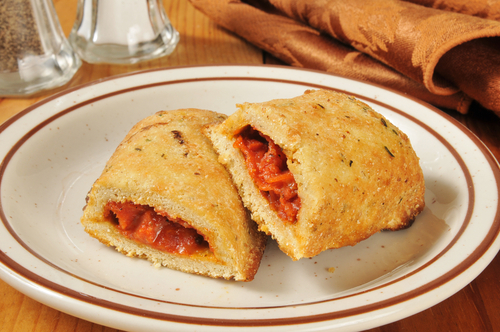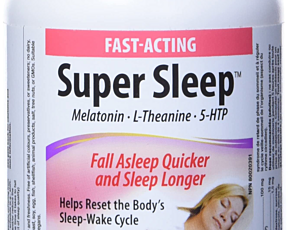Are Hot Pockets Bad For You?
Short answer
Hot Pockets are bad for you. The list of ingredients on the box of Hot Pockets is extremely long and includes words the average person can’t even recognize. Many harmful preservatives and additives are found within Hot Pockets.
Recommended Alternative
Category 'F' is for things that fail to bring anything beneficial to the table, and are very harmful to your health. We recommend completely avoiding anything in this category. Long-term side effects of 'F' items are usually very serious.
View Full Grading System
Category 'A'
Very healthy and numerous health benefits. Side effects are rare. Things rated an 'A+' are typically necessary for survival (for example, water).
Very healthy and numerous health benefits. A few harmful qualities may be associated, but only under certain circumstances such as an allergic reaction.
Very healthy and numerous health benefits. Harmful qualities may be associated, but aren't usually serious.
It is important to note that even the best things in life can become bad in immoderate amounts. So, although something may be rated an 'A+', overconsumption/overdoing can bring unwanted effects.
Category 'B'
Very beneficial to your health. Things rated a 'B+' may have a few harmful qualities to pay attention to.
Overall beneficial to your health. Things rated a 'B' may have some harmful qualities to pay attention to.
More beneficial to your health than not. However, harmful qualities are most likely associated and shouldn't be overlooked.
The main difference between category 'A' and category 'B' is the harmful qualities typically present in 'B' items. Serious side effects are usually uncommon, but are still possible and should be taken note of.
Category 'C'
Both beneficial and harmful qualities associated. Things rated a 'C+' are typically a bit more on the beneficial side. Still, moderation is important.
A fairly even ratio of beneficial and harmful qualities. Moderation is important. Very general topics that can lean towards both sides of the spectrum will be placed here as well. Rice, for example, can be good or bad depending on the type.
More harmful than beneficial. Side effects are common, especially when consumed/done excessively. Moderation is very important.
Category 'C' usually denotes to both good and bad qualities. When it comes to this category, it is important to keep this word in mind: moderation.
Category 'D'
Harmful to your health. Although benefits may be associated, the bad most likely outweighs the good. Moderation is very important.
Harmful to your health. A few benefits may be associated, but the bad outweighs the good. Moderation is extremely important.
Harmful to your health. Very few, if any, benefits are present. Things in this category should be avoided as much as possible.
Category 'D' is typically for things that are more harmful than beneficial. While consuming/doing something unhealthy once in a blue moon shouldn't hurt, we definitely recommend eliminating 'D' items as a regular part of your routine/diet.
Category 'F'
Category 'F' is for things that fail to bring anything beneficial to the table, and are very harmful to your health. We recommend completely avoiding anything in this category. Long-term side effects of 'F' items are usually very serious.
Category 'N'
'N' stands for neutral. Things placed into this category are generally (a) neither good nor bad for you, or (b) lack the necessary evidence to reach any conclusions.
Long answer
The ingredient list on the Hot Pockets box isn't just long, it covers one entire side of the box! These frozen little pockets are typically marketed towards kids, but they are hardly a healthy meal. Aside from the sugar and saturated fats that make up the roughly 300 calorie count per pocket, they also contain a handful of preservatives, additives, and modified substances.
Some of the ingredients you should pay attention to in Hot Pockets include sodium phosphate, carrageenan, sodium nitrate, and soy lecithin. The ingredients also list “color added” but doesn’t state the dye used.
Sodium phosphate is generally safe for consumption is small amounts; the problems arise when it’s eaten frequently. If you regularly eat processed meats, canned tuna fish, and well Hot Pockets, you’re definitely getting your fair share of this ingredient. Too much of this chemical causes an imbalance in phosphorus and calcium increasing your risk for osteoporosis and kidney disease.
Carrageenan is derived from seaweed and used to thicken food. It is generally not able to be absorbed by the body, though, and can even trigger an immune response in the gut leading to inflammation, ulcers, bleeding, and GI cancer.
Sodium nitrates form nitrosamines under certain conditions, which have been linked to degenerative neurological disorders and heart disease when consumed in high amounts. They are also commonly found in processed meats.
Soy, in general, is bad for you in large amounts because of the way it mimics estrogen in the body. The extraction of lecithin from the soy plant typically uses large amounts of hexane. Many people are allergic to both soy and hexane. Soy is also a heavily GMO product.
While these can be cooked in the oven, most people make them in the microwave in the convenient little sleeve they come it called a crisping sleeve. The purpose of this sleeve is to transform the microwave infrared radiation into thermal radiation. These sleeves are better known as susceptors, and often contain flakes of aluminum. Aluminum has been shown to lead to degenerative brain disorders such as Alzheimer’s and Parkinson’s. Aluminum can also increase estrogen-like effects and gene expression that can lead to cancer.
Possible short-term side effects
- allergic reaction
-
gastrointestinal problems
-
inflammation
-
ulcers
-
diarrhea
Possible long-term side effects
- osteoporosis
-
kidney disease
-
heart disease
-
degenerative brain disorders
-
cancer
Ingredients to be aware of
Our Wellness Pick
(what is this?)
Amy's Cheese Pizza Snacks
- Organic ingredients
- Cheese-filled delight
- Convenient snack size
- Non-GMO
Learn More!
Please turn your Ad Blocker off to see this content. Thank you!
Thank you for your feedback!
Written by Kristin Brown, DC, MS
Published on: 07-06-2016
Last updated: 12-15-2023
Thank you for your feedback!
Written by Kristin Brown, DC, MS
Published on: 07-06-2016
Last updated: 12-15-2023

 Approved by
Approved by 















